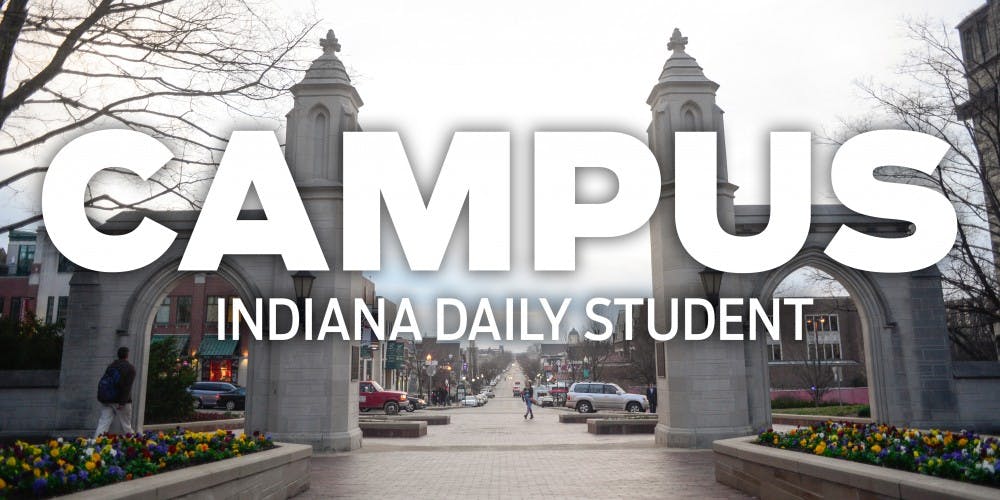From France to the Netherlands, a recent wave of populist movements has swept across Europe, and scholars at IU are comparing that wave to the rise of President Trump and populism in the United States.
Timothy Hellwig, an IU professor in the Department of Political Science, said there were many similarities between the populist wave sweeping Europe and the U.S., but this surge — from both the left- and the right wing — was not all from the same source.
Europe is home to many languages, and the refugee crisis, combined with general resentment of the EU, makes cultural integration difficult, Hellwig said.
“We, as informed scholars and observers, need to go beyond the similarities,” he said.
Hellwig among other faculty, visitors and graduate students met Wednesday afternoon in the Global and International Studies Building for a panel on the recent wave of populism sweeping Europe.
“The Rise of the Populist Right in Europe” featured Jennifer Picardi, senior trade adviser to the European Union delegation to the United States, and professors Elizabeth Dunn, Peter Kreko and Timothy Hellwig.
The event was organized by the Institute for European Studies and its director, professor Brett Bowles.
One key example during the panel was Geert Wilders, a nationalist candidate who lost the election in the Netherlands.
Though Wilders did not win the recent election in the Netherlands, Hellwig said there was still a lack of unity around the reasonable middle of the political spectrum.
He said while he didn’t intend to diminish the reality of populism across Europe, people should take the narrative with a grain of salt because every country has different political institutions.
Kreko, a Hungarian Fulbright visiting professor, said while Marine Le Pen, a nationalist presidential candidate in France, appeared to give her party a facelift.
Polls show socially liberal candidate Emmanuel Macron is expected to win the second round of elections.
Early in the French polls Francois Fillon was leading, but after a scandal involving Fillon and his wife, he lost momentum in the polls.
Le Pen and Macron then took the lead as the main contenders.
Kreko admitted caution should be exercised when making predictions given the once-unlikely Brexit vote.
He said another danger is a potential early election in Italy, where the anti-establishment Five Star Movement party could gain more traction in the Italian parliament.
The party has expressed a desire to renegotiate a loan the country took after the Euro Zone crisis in 2009.
Still, Kreko said what worried him more were mainstream populists like British Prime Minister Theresa May. She is more radical than Nigel Farage, the former leader of the UK Independence Party, which pushed the Brexit referendum, he said.
Dunn, a professor in the Department of International Studies, said she noticed the surge in European populism in the mid to late 1990s in Poland with the rise of Andrzej Lepper, who, among other positions, served as the country’s minister of agriculture.
Lepper, who committed suicide in 2011 amidst financial strain and a harassment scandal, spoke to three groups — former factory workers, farmers and people older than 40 years old — Dunn said had been left behind by neoliberalism.
Neoliberal policy told these groups to wait for success to arrive and when economic uplift never came, they felt marginalized Dunn said.
They were treated like necessary sacrifices, and this was mischaracterized by some in history as the aftermath of former Soviet states.
Because alienated groups did not control or understand the market, it was easy to feel shorted by European measures like hygiene requirements, which forced many small Polish slaughterhouses to close.
Jarosław Kaczynski, the leader of the Law and Justice party, which controls Poland’s parliament, recently mobilized this anger, by cracking down on press freedom and banning the resettlement of refugees, an EU initiative.
The collective anger makes the EU and other bureaucratic governing bodies easy to scapegoat, Piccardi said.
She referenced how President Trump’s plans to build a seawall on his golf course in Ireland were recently scrapped and how he incorrectly blamed the EU.
Piccardi said governing bodies like the EU need transnational cooperation to achieve their goals.
“You can’t build consensus when there’s disruption,” she said.
Populists’ goal isn’t to win full elections, she said.
They benefit off the disruption of traditional political order because in the end they still end up gaining support, which leads to seats in parliament.
One Ph.D. candidate said he noticed tension between attitudes toward populism on the panel and asked what they thought the solution was.
He also asked whether the panelists thought left-wing populism was the answer to the current trend in Europe.
Dunn said the concept was interesting but that populism does not have a single prescription.
Policy should have a lasting influence.
“Bullying companies into adding jobs is not a policy,” she said.






